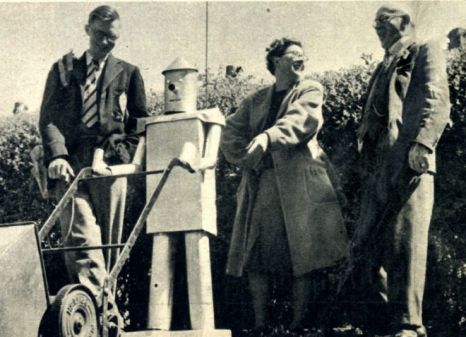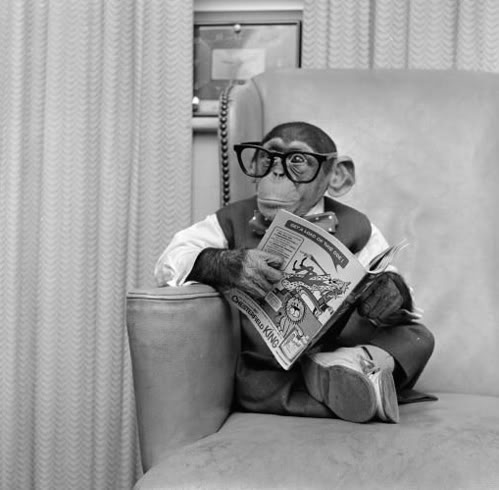Haven’t yet read Inventing the Future: Postcapitalism and a World Without Work by Nick Srnicek and Alex Williams, which I blogged about last month, though it’s on my list, my fucking list. Bookforum has published an excerpt. The authors are hopeful that a technological future–“Marxism basically dressed up with robotics,” as they’ve termed it–will free us from drudgery if we can ever unloose ourselves from the Puritan work ethic. I think regardless of work hours or mindset, the menial, physical or otherwise, will always be part of the human experience. There’s just something small about us.
A passage:
THE RIGHT TO BE LAZY
One of the most difficult problems in implementing a universal basic income (UBI) and building a post-work society will be overcoming the pervasive pressure to submit to the work ethic. Indeed, the failure of the United States’ earlier attempt to implement a basic income was primarily because it challenged accepted notions about the work ethic of the poor and unemployed. Rather than seeing unemployment as the result of a deficient individual work ethic, the UBI proposal recognized it as a structural problem. Yet the language that framed the proposal maintained strict divisions between those who were working and those who were on welfare, despite the plan effacing such a distinction. The working poor ended up rejecting the plan out of a fear of being stigmatized as a welfare recipient. Racial biases reinforced this resistance, since welfare was seen as a black issue, and whites were loath to be associated with it. And the lack of a class identification between the working poor and unemployed—the surplus population—meant there was no social basis for a meaningful movement in favor of a basic income. Overcoming the work ethic will be equally central to any future attempts at building a post-work world. Neoliberalism has established a set of incentives that compel us to act and identify ourselves as competitive subjects. Orbiting around this subject is a constellation of images related to self-reliance and independence that necessarily conflict with the program of a post-work society. Our lives have become increasingly structured around competitive self-realization, and work has become the primary avenue for achieving this. Work, no matter how degrading or low-paid or inconvenient, is deemed an ultimate good. This is the mantra of both mainstream political parties and most trade unions, associated with rhetoric about getting people back into work, the importance of working families, and cutting welfare so that “it always pays to work.” This is matched by a parallel cultural effort demonizing those without jobs. Newspapers blare headlines about the worthlessness of welfare recipients, TV shows sensationalize and mock the poor, and the ever looming figure of the welfare cheat is continually evoked. Work has become central to our very self-conception—so much so that when presented with the idea of doing less work, many people ask, “But what would I do?” The fact that so many people find it impossible to imagine a meaningful life outside of work demonstrates the extent to which the work ethic has infected our minds.
While typically associated with the protestant work ethic, the submission to work is in fact implicit in many religions. These ethics demand dedication to one’s work regardless of the nature of the job, instilling a moral imperative that drudgery should be valued. While originating in religious ideas about ensuring a better afterlife, the goal of the work ethic was eventually replaced with a secular devotion to improvement in this life. More contemporary forms of this imperative have taken on a liberal-humanist character, portraying work as the central means of self-expression. Work has come to be driven into our identity, portrayed as the only means for true self-fulfilment. In a job interview, for instance, everyone knows the worst answer to “Why do you want this job?” is to say “Money,” even as it remains the repressed truth. Contemporary service work heightens this phenomenon. In the absence of clear metrics for productivity, workers instead put on performances of productivity—pretending to enjoy their job or smiling while being yelled at by a customer. Working long hours has become a sign of devotion to the job, even as it perpetuates the gender pay gap. With work tied so tightly into our identities, overcoming the work ethic will require us overcoming ourselves.
The central ideological support for the work ethic is that remuneration be tied to suffering. Everywhere one looks, there is a drive to make people suffer before they can receive a reward.•





